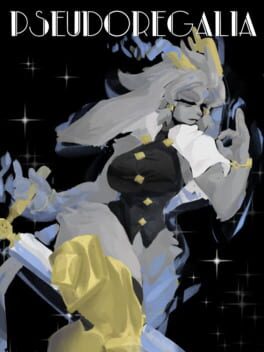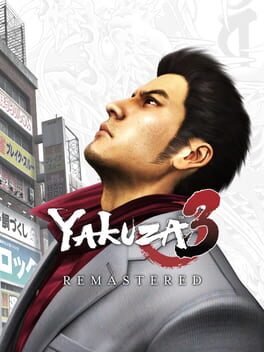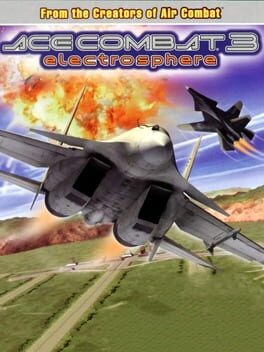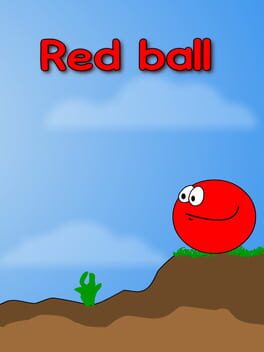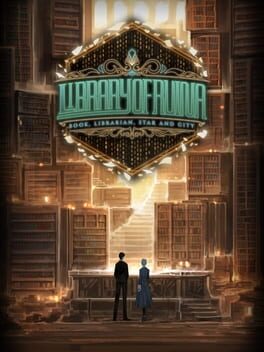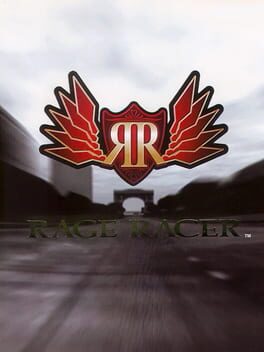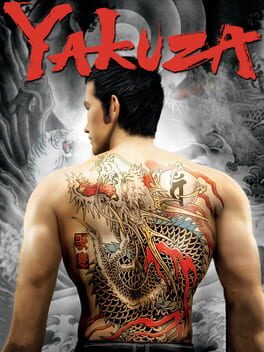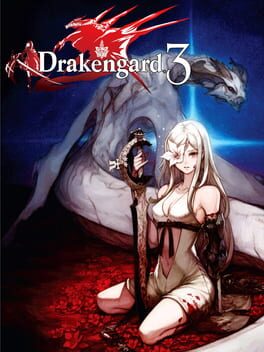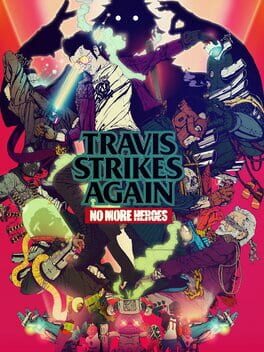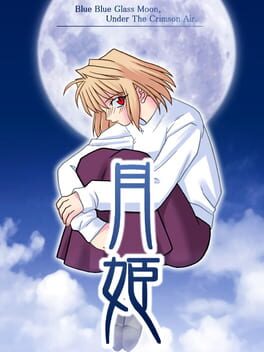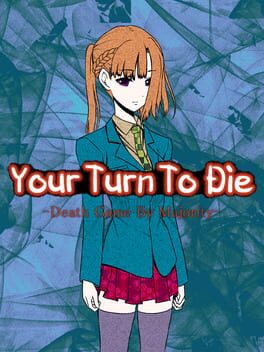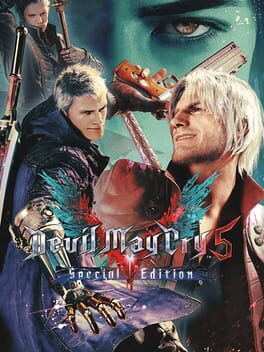laladotnet
121 reviews liked by laladotnet
Pseudoregalia
2023
Drakengard
2003
Drakengard is one of the most interesting games I have ever played. At its first glance and in its opening hours, it seems like the standard RPG affair, and it's not until after the first of the games 5 endings did the gears start turning in my head. Drakengard’s thesis statement might as well be to subvert the players expectations at every turn after that first ending, and it's honestly one of the most ethereal gaming experiences I have ever witnessed. To be honest, I’m having trouble even formulating all of my thoughts in an even slightly coherent manner, because this game is so fucking good. I think it is inevitable that in a few months I will find anything I say in this review somewhat shallow but that's the beauty of interpretive art like this. I didn't truly understand Evangelion after I first watched it at 15 and I think my Metal Gear Solid 2 review is extremely surface level now but I leave it up as a digital time capsule. Can you tell this review is going to be a lot of yapping?
The game is a deconstruction of RPG and general fantasy tropes in such a brilliant way, at first seeming to give into them. However, as you go on and dig under the surface of these characters and realize their complexities you start to understand and appreciate Drakengard that much more. Caim at first looks the part of your standard pure of heart RPG protagonist, even going mute at the very beginning of the game to mimic this. However, you very quickly realize that Caim is an absolutely bloodthirsty maniac. He is purely fueled by blind rage and bloodlust, yet will still protect his sister because he knows he's supposed to care for her. The game calls you out on this constantly but you must continue the bloodshed in order to press on with the game…
His sister Furiae seems to be your standard pure and innocent “damsel in distress” character, but this presentation of her character early on is almost like a red herring of sorts. Her lack of development is a critique of that archetype in and of itself. She purposefully keeps the less savory parts of her locked away, and it's not until the end that it's revealed more. Her feelings for Caim are just subtly incestuous which serve to drive home the point that despite her surface level appearance as your standard pure damsel in distress, that's really not what she is. Every character is like this really, Verdelet constantly accosts Caim for his bloodshed yet he is the one that drives him to action most often and routinely benefits from it. Inuart seems like the standard best friend character but gets consumed by jealousy and a pursuit of power to protect his lover, almost acting like the protagonist of a story that's not his. The greatest thing about the complexities of these characters is that it's never too particularly in your face about it either. I absolutely love how this game urges you to dig deeper into its themes. Other than the deconstructive elements of the plot, I feel like Drakengard is a story about hatred, revenge, the things we lose, the importance of love and what a lack of love can do, and the inherent faults of humans. In endings A B and C, Caim loses those closest to him due to his endless conquest of bloodshed. He ends with less things than he started. Ending A he not only loses Furiae and Inuart, but Angelus as well. Ending B he loses not just the three mentioned but the world is doomed and it seems like whatever battle that comes next won't be one Caim survives. Ending B in particular really brings things full circle for Furiae to me as well. After an entire game where she gets minimal screen time or development, the world is filled with grotesque clones of her that doom the world. She no longer has any love for Inuart or even Caim, after Inuart obsesses over protecting her. In Ending C Caim is forced to kill Angelus with his own two hands, the final price of his senseless killing is killing one who he holds the most dear. In each of these first three endings Caim is explicitly punished for his bloodshed. None of these endings are happy, and when I was playing I thought that surely endings B and C would be happier endings than ending A. However, Drakengard does not feel compelled to do this and each ending gets even more bleak than the last. You could take this as the game just being edgy, but I think to do so would be to blindly deny the game of its narrative qualities. Ending D sees the world caught in a permanently frozen state, but not before Caim dies in the end. It's so bleak and just so ethereal. Ending E is the most out of left field one. Caim and Angelus end up in fucking Shinjuku where they play a rhythm game to beat the final boss before being shot down by two missles from the Japanese defense force. The atmosphere is just so chilling and the imagery of Angelus being impaled on top of Tokyo Tower is one of the coolest things ever. The point I'm really trying to make here though is that every ending ends in varying degrees of misfortune for Caim as a result of his blind rage. Even in D and E where he tries to save the world and do a good deed he is punished with death. In attempting to save the world he also dooms it. Another core theme I find with this game is love. You see this a lot with Manah, who is seemingly manipulated by The Watchers/The Gods into thinking she is loved by them, as she received no love from her own mother and was abused by her. This sends her on a path to creating the apocalyptic scenarios that appear in basically every ending. In the end of ending A, she begs for death from Caim yet neither of them think she deserves such a release. She ends with no one left to give her love, not even The Gods. Inuart constantly tries to look for love from Furiae, completely misunderstanding her at every turn, eventually blaming Caim for his own infidelity and seeking revenge on him. These two themes come together to show that the world is this way because of the faults of mankind. Caim is only a coldblooded killer because of his parents death during the war and the attempted reconstruction of the world is due to the easily manipulated nature of humans especially those that are young and not cared for. In the more abstract, things are this way because of the genre that this story is. There is war, there is untold amounts of bloodshed because this is a fantasy RPG. Caim kills because he needs to level up and continue with the story. Which brings me to the gameplay.
The way people talk about the combat of this game makes it seem like the biggest piece of dogshit ever crafted, but really it's not that bad. The systems present in this game are fine enough and far from what I would call bad. However, the combat in Drakengard IS monotonous, but I think this serves a thematic purpose. You’re not meant to enjoy all the senseless killing, and as I said earlier Caim is punished for the indiscriminate bloodshed. However, this is a video game and you must do what the game says to keep going. You must kill even when you don't want to, to continue the game. It's a commentary on the genre in the sense that in RPGs and most video games in general you are rewarded for bloodshed. You are rewarded for killing senselessly and are never called out on it simply because it's a video game. Drakengard breaks this mold and goes as far to try and make the killing itself unenjoyable. I think it’s a really cool aspect of the game that gets overlooked by some because they simply write the combat off as bad and don't interact with it in a ludonarrative sense. The flying missions are awesome though I cant lie. They do also get a bit grueling at times so the ludonarrative cohesion remains intact but they’re definitely more fun than the ground missions.
The last thing I really want to talk about is the music in this game. Drakengard has the most interesting soundtracks in any game I've ever played. It has the sound of what you would expect from a high fantasy game, except it doesn't. Every song in the game uses samples from famous composers in really interesting ways. From Mozart to Tchaikovsky to Holst, you're bound to recognize some of these composers when you see them in the credits but it's doubtful that you'll actually recognize the songs as they appear in game. The game will often loop the same very short sample over and over to create songs that sound traditionally orchestrated but still have a distinct electronic feel to them. I’ve never heard anything like it— I wouldn't necessarily say that the songs are good in a traditional sense but as far as experimental music goes it's really unique and fun to listen to. The best of these songs is the ending B credits theme, “Growing Wings”. Give it a listen if you'd like to see an example of what I'm talking about.
I think that's about all I have to say about the game at this time. This is a serious contender for one of my favorite games of all time and I implore you to play it if you haven't. This probably isn't the case if you read this spoiler tagged review but the point still stands. This game is a masterpiece
The game is a deconstruction of RPG and general fantasy tropes in such a brilliant way, at first seeming to give into them. However, as you go on and dig under the surface of these characters and realize their complexities you start to understand and appreciate Drakengard that much more. Caim at first looks the part of your standard pure of heart RPG protagonist, even going mute at the very beginning of the game to mimic this. However, you very quickly realize that Caim is an absolutely bloodthirsty maniac. He is purely fueled by blind rage and bloodlust, yet will still protect his sister because he knows he's supposed to care for her. The game calls you out on this constantly but you must continue the bloodshed in order to press on with the game…
His sister Furiae seems to be your standard pure and innocent “damsel in distress” character, but this presentation of her character early on is almost like a red herring of sorts. Her lack of development is a critique of that archetype in and of itself. She purposefully keeps the less savory parts of her locked away, and it's not until the end that it's revealed more. Her feelings for Caim are just subtly incestuous which serve to drive home the point that despite her surface level appearance as your standard pure damsel in distress, that's really not what she is. Every character is like this really, Verdelet constantly accosts Caim for his bloodshed yet he is the one that drives him to action most often and routinely benefits from it. Inuart seems like the standard best friend character but gets consumed by jealousy and a pursuit of power to protect his lover, almost acting like the protagonist of a story that's not his. The greatest thing about the complexities of these characters is that it's never too particularly in your face about it either. I absolutely love how this game urges you to dig deeper into its themes. Other than the deconstructive elements of the plot, I feel like Drakengard is a story about hatred, revenge, the things we lose, the importance of love and what a lack of love can do, and the inherent faults of humans. In endings A B and C, Caim loses those closest to him due to his endless conquest of bloodshed. He ends with less things than he started. Ending A he not only loses Furiae and Inuart, but Angelus as well. Ending B he loses not just the three mentioned but the world is doomed and it seems like whatever battle that comes next won't be one Caim survives. Ending B in particular really brings things full circle for Furiae to me as well. After an entire game where she gets minimal screen time or development, the world is filled with grotesque clones of her that doom the world. She no longer has any love for Inuart or even Caim, after Inuart obsesses over protecting her. In Ending C Caim is forced to kill Angelus with his own two hands, the final price of his senseless killing is killing one who he holds the most dear. In each of these first three endings Caim is explicitly punished for his bloodshed. None of these endings are happy, and when I was playing I thought that surely endings B and C would be happier endings than ending A. However, Drakengard does not feel compelled to do this and each ending gets even more bleak than the last. You could take this as the game just being edgy, but I think to do so would be to blindly deny the game of its narrative qualities. Ending D sees the world caught in a permanently frozen state, but not before Caim dies in the end. It's so bleak and just so ethereal. Ending E is the most out of left field one. Caim and Angelus end up in fucking Shinjuku where they play a rhythm game to beat the final boss before being shot down by two missles from the Japanese defense force. The atmosphere is just so chilling and the imagery of Angelus being impaled on top of Tokyo Tower is one of the coolest things ever. The point I'm really trying to make here though is that every ending ends in varying degrees of misfortune for Caim as a result of his blind rage. Even in D and E where he tries to save the world and do a good deed he is punished with death. In attempting to save the world he also dooms it. Another core theme I find with this game is love. You see this a lot with Manah, who is seemingly manipulated by The Watchers/The Gods into thinking she is loved by them, as she received no love from her own mother and was abused by her. This sends her on a path to creating the apocalyptic scenarios that appear in basically every ending. In the end of ending A, she begs for death from Caim yet neither of them think she deserves such a release. She ends with no one left to give her love, not even The Gods. Inuart constantly tries to look for love from Furiae, completely misunderstanding her at every turn, eventually blaming Caim for his own infidelity and seeking revenge on him. These two themes come together to show that the world is this way because of the faults of mankind. Caim is only a coldblooded killer because of his parents death during the war and the attempted reconstruction of the world is due to the easily manipulated nature of humans especially those that are young and not cared for. In the more abstract, things are this way because of the genre that this story is. There is war, there is untold amounts of bloodshed because this is a fantasy RPG. Caim kills because he needs to level up and continue with the story. Which brings me to the gameplay.
The way people talk about the combat of this game makes it seem like the biggest piece of dogshit ever crafted, but really it's not that bad. The systems present in this game are fine enough and far from what I would call bad. However, the combat in Drakengard IS monotonous, but I think this serves a thematic purpose. You’re not meant to enjoy all the senseless killing, and as I said earlier Caim is punished for the indiscriminate bloodshed. However, this is a video game and you must do what the game says to keep going. You must kill even when you don't want to, to continue the game. It's a commentary on the genre in the sense that in RPGs and most video games in general you are rewarded for bloodshed. You are rewarded for killing senselessly and are never called out on it simply because it's a video game. Drakengard breaks this mold and goes as far to try and make the killing itself unenjoyable. I think it’s a really cool aspect of the game that gets overlooked by some because they simply write the combat off as bad and don't interact with it in a ludonarrative sense. The flying missions are awesome though I cant lie. They do also get a bit grueling at times so the ludonarrative cohesion remains intact but they’re definitely more fun than the ground missions.
The last thing I really want to talk about is the music in this game. Drakengard has the most interesting soundtracks in any game I've ever played. It has the sound of what you would expect from a high fantasy game, except it doesn't. Every song in the game uses samples from famous composers in really interesting ways. From Mozart to Tchaikovsky to Holst, you're bound to recognize some of these composers when you see them in the credits but it's doubtful that you'll actually recognize the songs as they appear in game. The game will often loop the same very short sample over and over to create songs that sound traditionally orchestrated but still have a distinct electronic feel to them. I’ve never heard anything like it— I wouldn't necessarily say that the songs are good in a traditional sense but as far as experimental music goes it's really unique and fun to listen to. The best of these songs is the ending B credits theme, “Growing Wings”. Give it a listen if you'd like to see an example of what I'm talking about.
I think that's about all I have to say about the game at this time. This is a serious contender for one of my favorite games of all time and I implore you to play it if you haven't. This probably isn't the case if you read this spoiler tagged review but the point still stands. This game is a masterpiece
Yakuza 3 Remastered
2018
After bursting onto the scene the year before into the HD era, RGG Studio (at that time SEGA’s CS1 team) had set up the groundwork for a full mainline entry in their ongoing series. It would chronicle Kiryu’s life and legacy as a character representative of the post-console era of the company.
Three is rough. There’s a million different things that you can pick apart and use to present the game as “objectively bad”. But it doesn’t matter. Three is the beating heart of Kiryu’s saga and the keystone entry that defines who the character is and largely what he’ll live for.
The importance of trust, bonds, and embracing humanity are pounded into your brain.
Mechanically speaking, there is no coincidence that you are hard locked into engaging with Kiryu’s kids and helping them each out with their problems. You can’t skip these segments, you can’t ignore them and move on to the “real plot”, because Morning Glory and Okinawa define why Kiryu keeps going. When Ayako feels she isn’t valued by the rest of the kids, you’re presented with seven dedicated dialogue choices to help them each learn to appreciate her. When Taichi's allergies trigger, you and Rikiya go out of your way to do a faux wrestling match just to inspire him. It’s very intentional and a big part of the emotional foundation of the game.
Kids aren’t quite at the point where they can dive deep into organized crime and feel its consequences, and yet the unflinching trust Kiryu is insistent on giving is a recurring element of the game. He’s entirely open to reviving Kashiwagi’s Honest Living Association to give washed-up yakuza another chance at life. He’s pounding this into Mine and Hamazaki at the end, even if it costs him his life.
What makes Kazuma Kiryu stand out among equally excellent protagonists in this series, the thing that he alone can really stand behind, is the overwhelming fatherly presence he carries. You listen to him speak with conviction and passion, and it makes you want to get off your lazy ass and do some reps. It makes you want to keep living, and rebuild. He lacks the emotional intelligence of Ichiban, and the brains of Yagami, but he’s the only one who can really fill the void of a father figure.
The themes and ideas from Yakuza 3 would carry onto the rest of the series and be explored beautifully. With Kiryu’s conviction being passed on all the way to his successor in Infinite Wealth, it was a great choice to revisit this incredibly important chapter in a series I love.
Three is rough. There’s a million different things that you can pick apart and use to present the game as “objectively bad”. But it doesn’t matter. Three is the beating heart of Kiryu’s saga and the keystone entry that defines who the character is and largely what he’ll live for.
The importance of trust, bonds, and embracing humanity are pounded into your brain.
Mechanically speaking, there is no coincidence that you are hard locked into engaging with Kiryu’s kids and helping them each out with their problems. You can’t skip these segments, you can’t ignore them and move on to the “real plot”, because Morning Glory and Okinawa define why Kiryu keeps going. When Ayako feels she isn’t valued by the rest of the kids, you’re presented with seven dedicated dialogue choices to help them each learn to appreciate her. When Taichi's allergies trigger, you and Rikiya go out of your way to do a faux wrestling match just to inspire him. It’s very intentional and a big part of the emotional foundation of the game.
Kids aren’t quite at the point where they can dive deep into organized crime and feel its consequences, and yet the unflinching trust Kiryu is insistent on giving is a recurring element of the game. He’s entirely open to reviving Kashiwagi’s Honest Living Association to give washed-up yakuza another chance at life. He’s pounding this into Mine and Hamazaki at the end, even if it costs him his life.
What makes Kazuma Kiryu stand out among equally excellent protagonists in this series, the thing that he alone can really stand behind, is the overwhelming fatherly presence he carries. You listen to him speak with conviction and passion, and it makes you want to get off your lazy ass and do some reps. It makes you want to keep living, and rebuild. He lacks the emotional intelligence of Ichiban, and the brains of Yagami, but he’s the only one who can really fill the void of a father figure.
The themes and ideas from Yakuza 3 would carry onto the rest of the series and be explored beautifully. With Kiryu’s conviction being passed on all the way to his successor in Infinite Wealth, it was a great choice to revisit this incredibly important chapter in a series I love.
Puts you in a trance from the beginning, where you’ll be under its spell till the end. Lingering even after that, begging you to come back and take flight once again. Electrosophere may not be as mechanically sound as the previous entry in the franchise, which is why it speaks volumes that it’s able to grip you tightly regardless, where you’ll dance to its tunes and fly through its skies. It’s more than just a pretty aesthetic, it’s more than just anti-war.
AC3’s view on war itself is that of a sick game played by sick old men and it treats it as such. What are you fighting for, really? Every mission feels like you’re nothing more than a pawn for powers greater than yourself, it's all a ploy. All of it. Every one wants a piece of the pie, a taste of power, a chance to reign supreme. Your actions are not your own, your decisions are not your own. It's all an illusion, a trick, and at the end of the day what are you fighting for, really? To maintain the status quo? The same one in which people live under corporations that only exist to suck them dry even further? What was it all for? Do you the connections you hold have any meaning?
The true ending which you unlock after having done all five routes is the ultimate showcase of this, showing why wars are really fought. Nothing noble, nothing special. Just a personal vendetta. Did it even matter? It's just a game at the end of the day.
𝗘𝗡𝗧𝗘𝗥𝗜𝗡𝗚 𝗘𝗟𝗘𝗖𝗧𝗥𝗢𝗦𝗣𝗛𝗘𝗥𝗘
AC3’s view on war itself is that of a sick game played by sick old men and it treats it as such. What are you fighting for, really? Every mission feels like you’re nothing more than a pawn for powers greater than yourself, it's all a ploy. All of it. Every one wants a piece of the pie, a taste of power, a chance to reign supreme. Your actions are not your own, your decisions are not your own. It's all an illusion, a trick, and at the end of the day what are you fighting for, really? To maintain the status quo? The same one in which people live under corporations that only exist to suck them dry even further? What was it all for? Do you the connections you hold have any meaning?
The true ending which you unlock after having done all five routes is the ultimate showcase of this, showing why wars are really fought. Nothing noble, nothing special. Just a personal vendetta. Did it even matter? It's just a game at the end of the day.
𝗘𝗡𝗧𝗘𝗥𝗜𝗡𝗚 𝗘𝗟𝗘𝗖𝗧𝗥𝗢𝗦𝗣𝗛𝗘𝗥𝗘
The sins of the yakuza are mine. And if I have to, I'll take on every last one.
If Kiryu’s saga established the man as a legend inextricably tied to underground crime, Infinite Wealth is truly able to bind the man to his fate.
Yakuza 5 establishes one point clearly: while he can hide all he wants, while he can even try to erase his identity and wallow in regret, he cannot erase his name.
If Ichiban’s previous game established anything, it’s making clear that you can truly rise up from any odds if you put your mind to it. Rehabilitation is possible, and if a washed-up 42-year-old former yakuza can take down the governor of Tokyo, so can anyone else.
7 establishes this guy’s ideals, and rather than him simply follow the footsteps and mistakes of his predecessor, Ichiban’s natural familial lovingness and talent for leadership are given a purpose by Kiryu.
The infinite wealth of experiences both we and Kiryu have gone through, the countless trials and tribulations, the visceral deaths and betrayals, it all defines who he is. Kiryu is deeply frustrated with who he’s become, but he can’t run away. He’ll take the sins of the yakuza with him, the lived experiences, the brutality, the violence. It’s his burden to carry, and it’s Ichiban’s to shape a better Japan in his stead.
Infinite Wealth’s enormous berth of side content, extravagant set pieces, rock solid character writing, and sense of scale cement it as the greatest work RGG Studio has created. Some iffy pacing and rough edges cannot hold back the beautiful storytelling that wraps the story of one of the most inspirational protagonists of the genre in a bow.
https://www.youtube.com/watch?v=ezWWBPbwBvo
If Kiryu’s saga established the man as a legend inextricably tied to underground crime, Infinite Wealth is truly able to bind the man to his fate.
Yakuza 5 establishes one point clearly: while he can hide all he wants, while he can even try to erase his identity and wallow in regret, he cannot erase his name.
If Ichiban’s previous game established anything, it’s making clear that you can truly rise up from any odds if you put your mind to it. Rehabilitation is possible, and if a washed-up 42-year-old former yakuza can take down the governor of Tokyo, so can anyone else.
7 establishes this guy’s ideals, and rather than him simply follow the footsteps and mistakes of his predecessor, Ichiban’s natural familial lovingness and talent for leadership are given a purpose by Kiryu.
The infinite wealth of experiences both we and Kiryu have gone through, the countless trials and tribulations, the visceral deaths and betrayals, it all defines who he is. Kiryu is deeply frustrated with who he’s become, but he can’t run away. He’ll take the sins of the yakuza with him, the lived experiences, the brutality, the violence. It’s his burden to carry, and it’s Ichiban’s to shape a better Japan in his stead.
Infinite Wealth’s enormous berth of side content, extravagant set pieces, rock solid character writing, and sense of scale cement it as the greatest work RGG Studio has created. Some iffy pacing and rough edges cannot hold back the beautiful storytelling that wraps the story of one of the most inspirational protagonists of the genre in a bow.
https://www.youtube.com/watch?v=ezWWBPbwBvo
Red Ball
2009
I'm writing this review barely an hour after having Infinite Wealth. Normally I'd wait a bit and let it sit in my mind as I try to pick it apart, and I know I'll realise that the edges are rougher, I know that...but right now I want my memory of this to remain as untainted as possible. I know that sometime in the future I'll look at this review with tainted eyes, cringing at my self but I want to write this right now so I can look back and see that I genuinely loved this game deeply.
It took nine whole games to get here, and I'm at the end of it with my emotions being a complete mess. It takes so much hard work to sell a character, much less the same one around eight times over, and each time I've fallen in love deeply with Kiryu Kazuma all over again.
"They all treat you as if you're some hero. If we ended up just like you...the illusions of the yakuza life would be stronger than ever."
Piece by piece for eight whole games, we've been building up the legend of the Dragon of Dojima alongside him. Every admiration thrown towards Kiryu doesn't feel like just cheap talk, it feels earned because you yourself earned it.
Infinite Wealth isn't an erasure of every misstep this franchise has taken, it doesn't hide it but instead puts it on full display, it shows just how much you have impacted the world around you for so long to the point where at the end of Kiryu's life, the only question that remains was "Was it worth it? Was it a life worth living?"
It's hard having the courage to do something. It's even harder to be the one to give that courage to others but this common trait, this link that runs deeper than the dragons on their backs, is exactly why Infinite Wealth isn't just talk. You've seen that exact event take place time and time again, and now all that remains is the end of Yakuza as you know it. It asks you to be brave and head towards an unfamiliar future, and let the burdens of the past be a weight on your shoulders no more.
I wish I had something more meaningful to say, and in the future I probably will, but I want a record of my feelings as they are now. A public if not embarrassing declaration of my utmost love for this entry in the series, guess I'm taking a page out of Ichiban's book in doing this. Not that it matters, I think we can all benefit by being a bit more like Ichiban Kasuga.
It took nine whole games to get here, and I'm at the end of it with my emotions being a complete mess. It takes so much hard work to sell a character, much less the same one around eight times over, and each time I've fallen in love deeply with Kiryu Kazuma all over again.
"They all treat you as if you're some hero. If we ended up just like you...the illusions of the yakuza life would be stronger than ever."
Piece by piece for eight whole games, we've been building up the legend of the Dragon of Dojima alongside him. Every admiration thrown towards Kiryu doesn't feel like just cheap talk, it feels earned because you yourself earned it.
Infinite Wealth isn't an erasure of every misstep this franchise has taken, it doesn't hide it but instead puts it on full display, it shows just how much you have impacted the world around you for so long to the point where at the end of Kiryu's life, the only question that remains was "Was it worth it? Was it a life worth living?"
It's hard having the courage to do something. It's even harder to be the one to give that courage to others but this common trait, this link that runs deeper than the dragons on their backs, is exactly why Infinite Wealth isn't just talk. You've seen that exact event take place time and time again, and now all that remains is the end of Yakuza as you know it. It asks you to be brave and head towards an unfamiliar future, and let the burdens of the past be a weight on your shoulders no more.
I wish I had something more meaningful to say, and in the future I probably will, but I want a record of my feelings as they are now. A public if not embarrassing declaration of my utmost love for this entry in the series, guess I'm taking a page out of Ichiban's book in doing this. Not that it matters, I think we can all benefit by being a bit more like Ichiban Kasuga.
Library of Ruina
2021
"O my sorrow, you are better than a well-beloved: because I know that on the day of my final agony, you will be there lying in my sheets, O sorrow, so that you might once again attempt to enter my heart."
i am definitely not the best reviewer but i really enjoyed this experience so i am going to attempt! i apologize if it is messy
Library of Ruina is a game that has genuinely blew me away and impacted me so damn hard with its beautifully written setting, characters, and themes. The way it presents its world and characters with "receptions" that allow you to peek into the opponent's unique lives around the city before you inevitably face them. This format really tugs on you and never fails to make you think deeply about the person at the other side of your weapon.
The characters in this game are so painstakingly human. The themes of humanity in this game really fascinate me, specifically what humans are capable of, and what it means to be human. Agh. Anyway play this game if you can dawg what the fuck
Also Roland is fucking peak he might be one of my favorite protagonists of all time now bro IDEK
i am definitely not the best reviewer but i really enjoyed this experience so i am going to attempt! i apologize if it is messy
Library of Ruina is a game that has genuinely blew me away and impacted me so damn hard with its beautifully written setting, characters, and themes. The way it presents its world and characters with "receptions" that allow you to peek into the opponent's unique lives around the city before you inevitably face them. This format really tugs on you and never fails to make you think deeply about the person at the other side of your weapon.
The characters in this game are so painstakingly human. The themes of humanity in this game really fascinate me, specifically what humans are capable of, and what it means to be human. Agh. Anyway play this game if you can dawg what the fuck
Also Roland is fucking peak he might be one of my favorite protagonists of all time now bro IDEK
Rage Racer
1996
when i think of ridge racer usually what comes to mind is smoothness (in both its mechanical and aesthetic prowess) and profound representation of real world context that races concurrently with the game’s own individual racers. even the first title as a rudimentary beginning still has the flair of that early-console-post-arcade mindset. jungly breakbeats of the era kick hard, perhaps being the only motivating factor to indulge at all.
rage racer sees this and for some reason decides to evolve the formula in ways that seem like they’d be no-brainers to AVOID implementing. was there any need for unnecessarily narrow corridors and roads that twist, turn, and bump up and down? racing is of course a test of reaction and muscle memory but this one leans way too much into the muscle memory factor. with the constant up-and-down-and-all-around attitude of the course design it’s basically down to memorization to survive these anti-racer extravaganzas. for some reason drifting also uncontrollably brings you to slower speeds and then manually tries to put you back into a fixed position while relieving you of all control. so much for perfect cornering.
look, i get what they were going for. cities lined up against waterfalls with roads along the countryside bridges etc etc; of course it works on paper but it’s failing to immerse me here especially when the track design conflicts with the logic behind it all. i understand these are “rage” racers who don’t participate in normal races, but it’s still possible to walk the ludonarrative fine line while making the gameplay fun. it’s a racing game. maybe it’s called rage racer because they knew how much people would rage at how unfun it can be sometimes. the soundtrack is nice but weirdly unfitting? i don’t know. i don’t think the actual game embraces late 90s immaturity as much as the soundtrack does.
we do get to see how the series evolved i suppose. i can definitely see where they built off of this for R4 and subsequent titles. this is just a boring and sometimes frustrating game to play. scuffed racer. jank racer. shit racer. Might Need A Remake. this is what this game is like
rage racer sees this and for some reason decides to evolve the formula in ways that seem like they’d be no-brainers to AVOID implementing. was there any need for unnecessarily narrow corridors and roads that twist, turn, and bump up and down? racing is of course a test of reaction and muscle memory but this one leans way too much into the muscle memory factor. with the constant up-and-down-and-all-around attitude of the course design it’s basically down to memorization to survive these anti-racer extravaganzas. for some reason drifting also uncontrollably brings you to slower speeds and then manually tries to put you back into a fixed position while relieving you of all control. so much for perfect cornering.
look, i get what they were going for. cities lined up against waterfalls with roads along the countryside bridges etc etc; of course it works on paper but it’s failing to immerse me here especially when the track design conflicts with the logic behind it all. i understand these are “rage” racers who don’t participate in normal races, but it’s still possible to walk the ludonarrative fine line while making the gameplay fun. it’s a racing game. maybe it’s called rage racer because they knew how much people would rage at how unfun it can be sometimes. the soundtrack is nice but weirdly unfitting? i don’t know. i don’t think the actual game embraces late 90s immaturity as much as the soundtrack does.
we do get to see how the series evolved i suppose. i can definitely see where they built off of this for R4 and subsequent titles. this is just a boring and sometimes frustrating game to play. scuffed racer. jank racer. shit racer. Might Need A Remake. this is what this game is like
Yakuza
2005
Rain unflinchingly crashes down and streaks of the city of night’s lights span the environment like a giant Christmas tree. Pockets of violence in poorly-lit alleys, excess amounts of sex and indulgence are right there on display. Trash coats the streets – between the literal garbage and mindless yakuza looking to brutalize civvies. The PS2 adds a thick blur and bloom that toes the line between feeling shit-faced drunk and nostalgically hazy.
It’s winter in Kamurocho.
Toshihiro Nagoshi felt REALLY strongly about getting his project across to SEGA. With an ensemble cast of SEGA R&D developers having worked on a wide range of experiences, they were tasked with communicating the viscerally human experience he envisioned back in the fall of ‘05.
Ryu ga Gotoku was an ambitious title, especially to be cranked out in such a short time span. With a pretty chunky budget, and a fresh engine with all of its tooling having to be built from the ground-up, it seemed like an insurmountable task. But, at the end of the day, the game came out and really pushed SEGA into the 21st century. I like to think that binding the whole group together, keeping the project coherent and passionate, were the unflinching ideals of Kiryu himself.
Yakuza’s a real treat if you’re like me and love Japanese crime novels and movies. It’s in a lot of ways a Takashi Miike pastiche, with the extreme silver screen brutality of his films being translated to cinematic heat actions Kiryu can pull off. Hase Seishu, a prolific yakuza crime novelist, played a big role in punching up the script – putting some extra age on Kiryu and Date. Yakuza 1’s roots are in the rich atmosphere of that late 90s/early 2000s film culture, and the studio wanted nothing more than to present a slice of that experience on the PS2.
Kiryu’s combat is unrefined and characterized by its slow, meaty punches and kicks. The typical beat-em-up smash, crack, and crunch is taken to an 11. The heat system rewards engaging with the combat system with cinematic finishes characteristic of a martial arts flick. The slowness and sluggishness of Kiryu forces him to take things slowly, being mindful of proper zoning and positioning as walls of thugs come for his head. He’s strong, yeah, but Yakuza is able to avoid him feeling superhuman.
The experience was and still is ephemeral in its airtight pacing, uniquely mid-2000s grit, and healthy dose of first-game jank. Even then, Yakuza’s formula was so damn good it kicked off a franchise.
Soon after Yakuza 1 opens, we’re given a brief scene in Serena – despite Kiryu’s gruff demeanor and the tough guy attitude needed to collect loans and pummel people into submission, he’s an open book around people he considers family. Reina tends to the bar while Kiryu and Nishikiyama flank Yumi in the chairs. The scene’s entirely silent, but you can get the impression there’s an unspoken, rich history that Kiryu’s lived through. 1995 feels like a tiny glimpse into the everyday life of Kiryu – the story could have easily focused on the many fights he’s been in before that point that built up the Dragon of Dojima, but instead he’s humanized.
And despite it all, there’s a feeling that none of it’s gonna last. Nishiki brings up his dying sister, as a perfect representation of how this peace is on borrowed time. Kazama reminds him to visit Sunflower Orphanage once in a while…
…and it happens. Dojima lays his stubby fingers on Yumi, and Nishiki and Kiryu seal their fates.
Kiryu’s spent a whole game bonding with those around him, shaping other men in his life to become better fathers. His journey isn’t one of developing raw strength, he’s got plenty of that. No, it’s about being able to break the vicious cycle he’s been trapped in. Taking blows for his oath brother, pretty much signing off his life to the yakuza for good, and being appointed the fourth chairman of a massive Kanto organization is enough to define a legend. But, Kiryu’s able to fulfill the wisdom of the dragon on his back by simply living happily on his own terms. He’ll define his own path, his own idea of strength, even if it means starting things fresh with an orphan set on a similar path to his own. Kiryu can pursue happiness, he can unflinchingly look towards his own future, because he’s able to address his past and face it head on. The pain is overwhelming, crippling, but it’s a part of living.
The waterfall legend of the koi, and its uncompromising desire to reach the top and become a dragon, can’t be ignored. Nishiki isn’t happy. There’s not a point in the story where he isn’t dealing with some turmoil. Everyone walks all over him. His sister died, in his eyes, to his own powerlessness. His childhood crush won’t even look at him. He’s fundamentally limited by his feelings – his frustrations and personal limitations.
And so, he’ll try and change his destiny. He’ll step on whoever he wants, do any kind of underhanded tactics, if it means he can hit the top. It’s past the point of no return, and he wants it all.
But… what’s there? What awaits Nishiki at the top? For whose sake is he continuing to push on?
It’s winter in Kamurocho.
Toshihiro Nagoshi felt REALLY strongly about getting his project across to SEGA. With an ensemble cast of SEGA R&D developers having worked on a wide range of experiences, they were tasked with communicating the viscerally human experience he envisioned back in the fall of ‘05.
Ryu ga Gotoku was an ambitious title, especially to be cranked out in such a short time span. With a pretty chunky budget, and a fresh engine with all of its tooling having to be built from the ground-up, it seemed like an insurmountable task. But, at the end of the day, the game came out and really pushed SEGA into the 21st century. I like to think that binding the whole group together, keeping the project coherent and passionate, were the unflinching ideals of Kiryu himself.
Yakuza’s a real treat if you’re like me and love Japanese crime novels and movies. It’s in a lot of ways a Takashi Miike pastiche, with the extreme silver screen brutality of his films being translated to cinematic heat actions Kiryu can pull off. Hase Seishu, a prolific yakuza crime novelist, played a big role in punching up the script – putting some extra age on Kiryu and Date. Yakuza 1’s roots are in the rich atmosphere of that late 90s/early 2000s film culture, and the studio wanted nothing more than to present a slice of that experience on the PS2.
Kiryu’s combat is unrefined and characterized by its slow, meaty punches and kicks. The typical beat-em-up smash, crack, and crunch is taken to an 11. The heat system rewards engaging with the combat system with cinematic finishes characteristic of a martial arts flick. The slowness and sluggishness of Kiryu forces him to take things slowly, being mindful of proper zoning and positioning as walls of thugs come for his head. He’s strong, yeah, but Yakuza is able to avoid him feeling superhuman.
The experience was and still is ephemeral in its airtight pacing, uniquely mid-2000s grit, and healthy dose of first-game jank. Even then, Yakuza’s formula was so damn good it kicked off a franchise.
Soon after Yakuza 1 opens, we’re given a brief scene in Serena – despite Kiryu’s gruff demeanor and the tough guy attitude needed to collect loans and pummel people into submission, he’s an open book around people he considers family. Reina tends to the bar while Kiryu and Nishikiyama flank Yumi in the chairs. The scene’s entirely silent, but you can get the impression there’s an unspoken, rich history that Kiryu’s lived through. 1995 feels like a tiny glimpse into the everyday life of Kiryu – the story could have easily focused on the many fights he’s been in before that point that built up the Dragon of Dojima, but instead he’s humanized.
And despite it all, there’s a feeling that none of it’s gonna last. Nishiki brings up his dying sister, as a perfect representation of how this peace is on borrowed time. Kazama reminds him to visit Sunflower Orphanage once in a while…
…and it happens. Dojima lays his stubby fingers on Yumi, and Nishiki and Kiryu seal their fates.
Kiryu’s spent a whole game bonding with those around him, shaping other men in his life to become better fathers. His journey isn’t one of developing raw strength, he’s got plenty of that. No, it’s about being able to break the vicious cycle he’s been trapped in. Taking blows for his oath brother, pretty much signing off his life to the yakuza for good, and being appointed the fourth chairman of a massive Kanto organization is enough to define a legend. But, Kiryu’s able to fulfill the wisdom of the dragon on his back by simply living happily on his own terms. He’ll define his own path, his own idea of strength, even if it means starting things fresh with an orphan set on a similar path to his own. Kiryu can pursue happiness, he can unflinchingly look towards his own future, because he’s able to address his past and face it head on. The pain is overwhelming, crippling, but it’s a part of living.
The waterfall legend of the koi, and its uncompromising desire to reach the top and become a dragon, can’t be ignored. Nishiki isn’t happy. There’s not a point in the story where he isn’t dealing with some turmoil. Everyone walks all over him. His sister died, in his eyes, to his own powerlessness. His childhood crush won’t even look at him. He’s fundamentally limited by his feelings – his frustrations and personal limitations.
And so, he’ll try and change his destiny. He’ll step on whoever he wants, do any kind of underhanded tactics, if it means he can hit the top. It’s past the point of no return, and he wants it all.
But… what’s there? What awaits Nishiki at the top? For whose sake is he continuing to push on?
